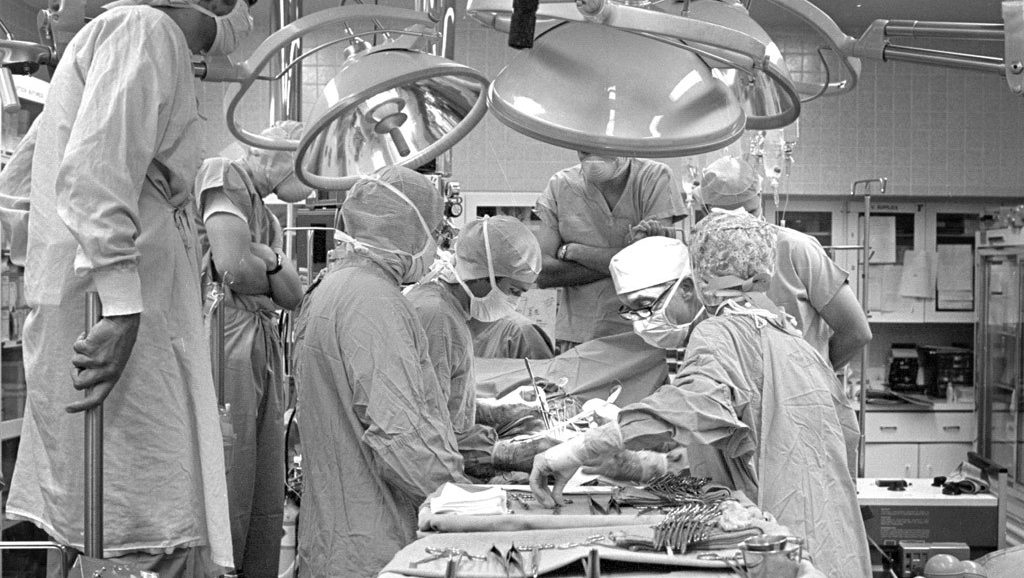Earlier this year, we did a lot of reminiscing about a major milestone in Stanford Medicine's history: the first successful adult heart transplant in the United States, which happened 50 years ago. The latest issue of Stanford Medicine magazine highlights the work and describes other advancements made since then:
In the years following that first transplant, Stanford's program -- working under the auspices of the National Institutes of Health Program Project Grant for Cardiac Transplantation -- made further advances that greatly improved patient survival rates, writes Joseph Woo, MD, current chair of cardiothoracic surgery, in a 2015 article for the journal Seminars in Thoracic and Cardiovascular Surgery.
'These included refinements in immunosuppression, management of complications such as infection and lymphoma, distant heart procurement, patient and donor selection criteria, and the diagnosis of rejection by biopsy,' Woo writes.
Writer Tracie White goes on to call out other milestones at Stanford, including the first cardiac biopsy on a transplant patient (1972), the world's first successful heart-lung transplant surgery (1980) and the first Heartport procedure, which eliminates the need for cutting the breastbone during surgery (1994). In addition, in 2004 Lucile Packard Children's Hospital Stanford became one of the first U.S. hospitals to use the Berlin Heart, an external heart pump.
And stay tuned: The next innovation in heart care is certainly just around the bend.
Photo of first heart-lung transplant surgery courtesy of Stanford Medical History Center




